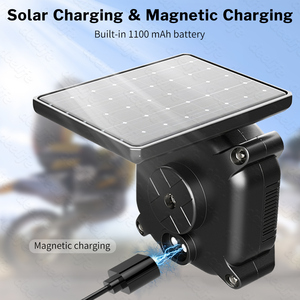Introduction to Wireless Pressure Sensor
The wireless pressure sensor represents a significant advancement in pressure measurement technology. These devices offer a seamless solution for monitoring pressure without the constraints of traditional wired systems. They are ideal for various industries, from manufacturing to healthcare, where accurate pressure readings are crucial for safety, efficiency, and performance.
Types of Wireless Pressure Sensors
Wireless pressure sensors come in various types, each designed to cater to specific applications and environment conditions. Understanding the differences among these types can help users make informed decisions.
- Gauge Pressure Sensors: Measure pressure relative to ambient atmospheric pressure, making them widely used in various industrial applications.
- Absolute Pressure Sensors: Provide measurements relative to a perfect vacuum, essential for tasks requiring high accuracy.
- Differential Pressure Sensors: Measure the difference between two pressure points, useful in applications like HVAC systems.
- Piezoelectric Sensors: Utilize piezoelectric materials to detect pressure changes, ideal for dynamic pressure monitoring.
- Capacitive Sensors: Use capacitance changes to measure pressure and are known for their high sensitivity.
Applications of Wireless Pressure Sensors
The flexibility and reliability of wireless pressure sensors make them suitable for numerous applications across different industries:
- Manufacturing: Monitoring fluid and gas pressure in manufacturing processes enhances safety and efficiency.
- Healthcare: Wireless pressure sensors are integral in medical devices, allowing for real-time monitoring of patients' vital signs.
- Agriculture: Used for soil moisture monitoring, helping farmers maintain optimal growing conditions.
- HVAC Systems: Ensuring proper air pressure in heating and cooling systems contributes to energy efficiency.
- Automotive: Monitoring tire pressure in real-time enhances vehicle safety and performance.
Features and Advantages of Wireless Pressure Sensors
Wireless pressure sensors are packed with innovative features that provide numerous advantages over traditional sensors:
- Wireless Connectivity: Eliminates the need for extensive wiring, reducing installation complexity and costs.
- Real-Time Data Monitoring: Provides instant pressure readings, enabling quick decision-making and response to pressure changes.
- Battery-Powered Options: Many models are battery-operated, allowing for flexibility in sensor placement.
- Integration Capabilities: Easily integrates with existing monitoring systems, facilitating data management and analysis.
- Durability: Typically built to withstand harsh environments, ensuring reliability and longevity in various conditions.






























































































































































































































